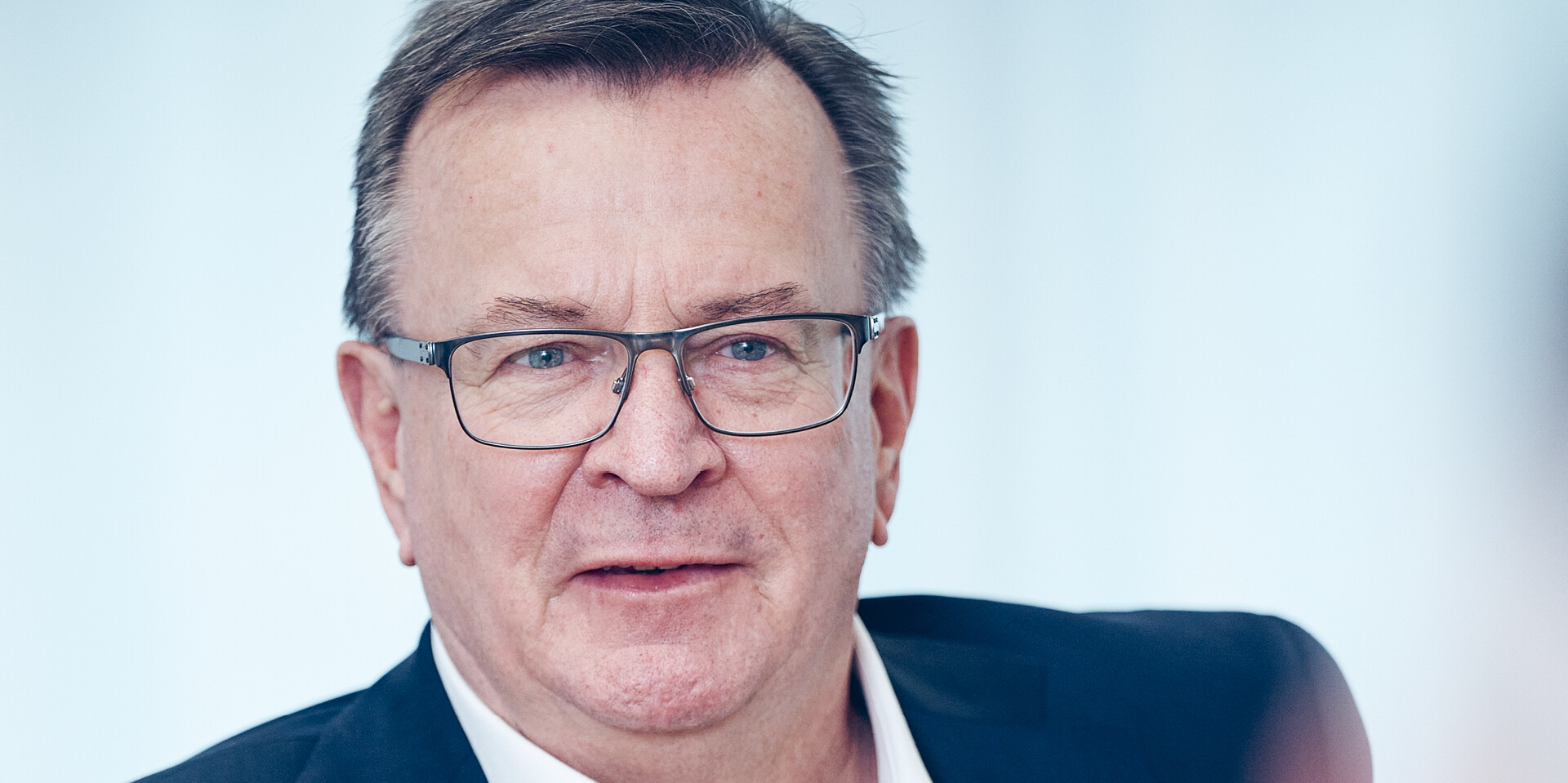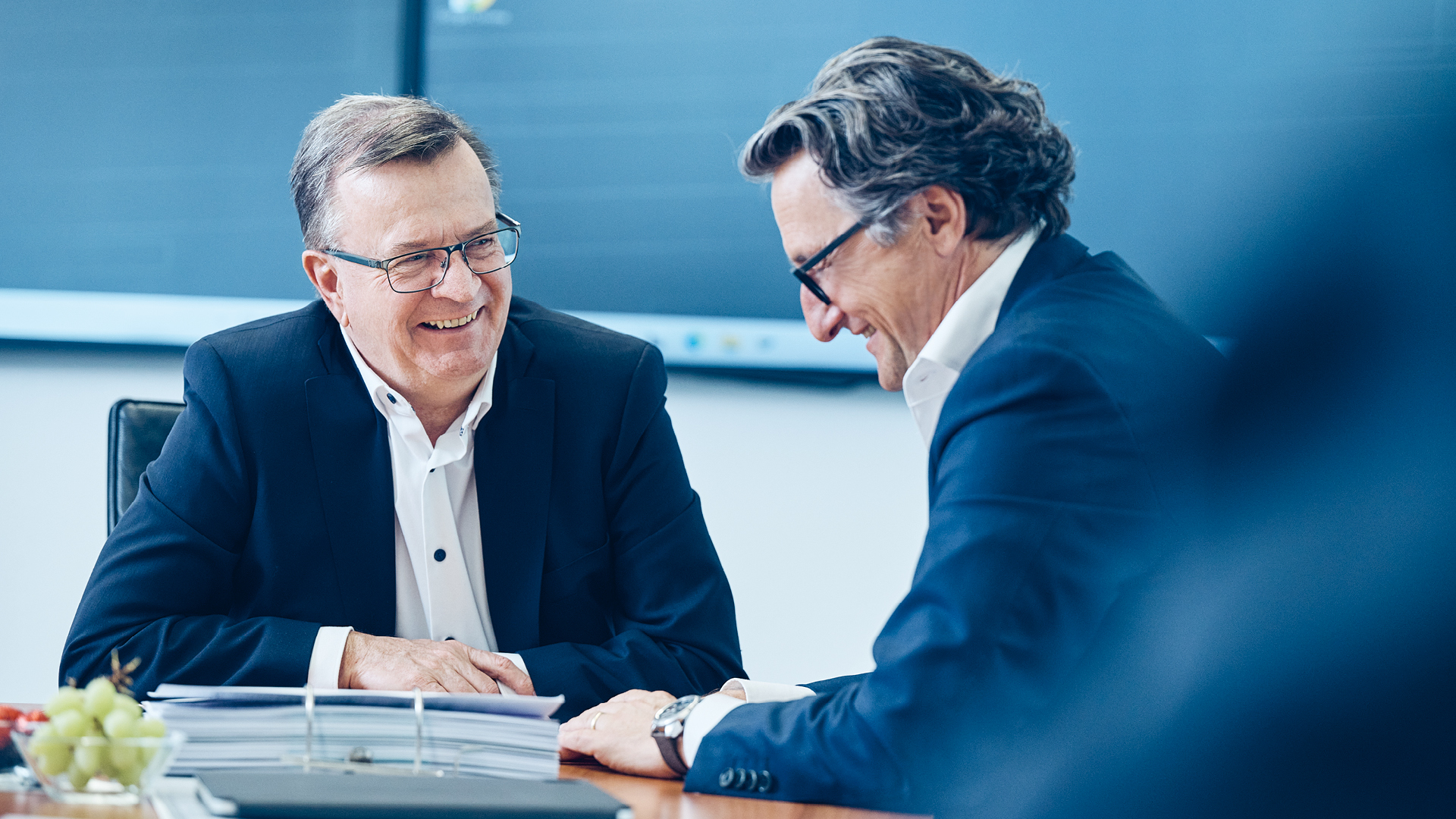“It is the right combination of innovation and operational excellence that keeps us successful in the long term.”

Dr. Martin Komischke, President of the Board of Directors of HOERBIGER Holding AG, is proud that in the past fiscal year, HOERBIGER achieved the best result in its 130-year history in such an exceptionally challenging environment. He is convinced that the ability to succeed in a demanding environment is one of HOERBIGER’s greatest strengths.
How would you describe the past year for the HOERBIGER Group?
Dr. Martin Komischke — In short, it was the best year in our history. This is evident in several areas: the figures – especially growth – profitability, innovation, and the quality with which we have continued to develop our business in the market. 2024 was a year in which many companies had to overcome major challenges to stay in business. The fact that we achieved the best result in our 130-year history in such an exceptionally challenging environment fills me with great pride.
“ I hope that we venture into new markets that bring us forward like a carrying stream, rather than having to fight against them.”
What do you think has made this success possible?
MK — We owe this success to our employees, who are based locally, think entrepreneurially, and act independently. They make all the difference. Over the past few years, we have systematically strengthened our existing team at all levels of the organization, in the Executive Board, and on the Board of Directors. Many of our new colleagues have made a decisive contribution to the success of the past year.
What makes the HOERBIGER team so successful?
MK — We know how to preserve continuity in difficult economic times – in all areas. We have successfully worked on innovations, entered new markets, and continued to develop existing ones, even though some, such as the automotive market, were in a state of emergency. A success that is particularly important to me personally is the excellent cooperation between the Board of Directors and the Executive Board. Our collaboration is characterized by openness, mutual trust, and a clear focus on a shared vision for the future. This spirit of working together has contributed significantly to our success.
Where do you see the challenges?
MK — The biggest challenge is the turmoil currently affecting some markets, as I mentioned earlier. This environment requires us to be particularly vigilant and adaptable in order to remain successful. Our Automotive Division has already demonstrated this impressively. Another important issue is the continuous review and adjustment of our strategy so that we can respond appropriately to the numerous changes in the market. It takes foresight and agility to further strengthen our position in a dynamic environment.
You are referring to the strategy that the Board of Directors developed together with the Executive Board in 2021. What prompted this renewed discussion?
MK — We review our strategy periodically to ensure that it is in line with current market developments. Particularly in the automotive sector and the hydrogen market, it was important to question our assumptions and the plans we had made. Our goal was to check whether we had made the right decisions to adapt effectively to the changed market conditions and remain competitive in the long term.
“We have mastered the ability to maintain continuity in difficult economic times – in all areas.”
And what was your conclusion?
MK — One important positive aspect was the confirmation that we continue to hold a strong position in the gas market and want to establish ourselves as a leading player there. Semiconductor technology, medical technology, and biotechnology were also confirmed as major growth areas. These are markets that are driven by a megatrend and in which we want to strengthen our position.
Acquisitions are a key element of the growth strategy. Which technologies fit into HOERBIGER’s portfolio?
MK — Acquisitions must complement or expand our existing capabilities and business models in a meaningful way. We remain true to our roots: It always starts with “performance-defining components for...” and ends with the ability to service them. Another core competence that we can specifically contribute to acquisitions is our operational excellence. This is a strength that we are not always fully aware of. Decades in challenging industries such as the automotive industry have made us extremely efficient, especially when it comes to achieving profitable growth even in difficult markets. A good example of this is our Air & Industrial business in the Compression Division. Thanks to our operational excellence, we have developed this area into a real growth driver.
Our strong performance in recent years has positioned us as an attractive player in the M&A market. Thanks to our profitable growth, we have the required financial resources and enjoy a high level of credibility among investors. This is crucial because, although we are realistic in our approach, we are ambitious to make acquisitions that will take HOERBIGER’s growth and stability to a new level. Acquisitions of this size require considerable financial commitment – funds that we cannot simply cover from our equity.

Dr. Martin Komischke with Dr. Andreas Hünerwadel, President of the Board of Trustees of the HOERBIGER Foundation.
Can you think of any situations in which HOERBIGER might sell existing businesses?
MK — Yes, serious portfolio management means you can’t rule out selling individual businesses. One reason for divesting a business might be that it no longer fits into the overall strategy. Another reason would be that we, as the owner, are no longer able to offer this business the best opportunities for the future – either because we are too small or because other market players offer long-term strategic advantages that we do not have or cannot develop ourselves. We have to ask ourselves this question because the markets are in a state of constant change. It is not enough to simply continue doing what we are doing today. Instead, we owe our employees and the company a clear vision for the future. That is why divestments should not be seen as a shortcoming, but rather as a conscious strategic decision to ensure long-term stability and growth – both for HOERBIGER and for the affected organizational units and their employees.
How do you see HOERBIGER’s innovation power, and what progress was made in 2024?
MK — HOERBIGER’s innovation power has remained steady for years – at an exceptionally high level. The big difference these days is that innovation for us isn’t just about improving existing products or creating new ones but also making sure these products meet customer needs and are sold successfully.
Experts expect the general breakthrough of hydrogen technology to be delayed by at least another two years. How is HOERBIGER responding to this change?
MK — The hydrogen compressor remains a key component of our strategy. We will continue to develop and market it until it achieves its final breakthrough. We have the entrepreneurial stamina to pursue this path consistently. We are convinced that this compressor technology is universally applicable and has enormous market potential. However, we are carefully reviewing other hydrogen applications to assess their actual market potential in order to use our resources efficiently.
How do you expect the economic environment to develop over the next 12 to 18 months?
MK — Up to now, I consider the economic conditions for HOERBIGER this year to be relatively satisfactory. However, things will become significantly more difficult going into the fourth quarter. I expect the global economy to take a sharp downturn at the end of the year. But that doesn’t mean we shouldn’t be optimistic. HOERBIGER has proven in the past that we can successfully adapt to difficult conditions.
You have been with HOERBIGER for more than 30 years. What has kept you passionate about the company over the years?
MK — What has excited me over the years is our ability to continually find new markets and actively develop them, despite difficult economic conditions and challenges. We achieve this through a combination of innovation and operational excellence, which has enabled us to build a business that is successful for the long term. We owe this ability to our outstanding employees.
When I think of the people behind these successes, I am impressed by their commitment, their determination, and their ability to find and implement solutions even in difficult times. That is what HOERBIGER means to me – since 1993 and to this day. It is this special culture, this passion, that I have never experienced to this extent in any other organization.
HOERBIGER is celebrating its 130th anniversary this year. If you had one wish for the company’s future, what would it be?
MK — My greatest wish for the future of HOERBIGER is that we successfully master the challenges in markets such as oil and automotive while tapping into new markets that are part of long-term, sustainable growth trends. These new markets should not only create stability but also drive us forward in a way that will enable us to remain successful in the future.
At the moment, it feels as if we are swimming upstream against the flow. We are making progress with great effort, but it is costing us enormous energy. I hope that we can establish ourselves in new markets that support our growth like a carrying stream – or even accelerate it. If we move into markets with megatrends – or perhaps we should call them sustainable future topics – then we can achieve great things with the same energy. It’s like jumping into the water and letting the natural flow carry us to our destination at high speed.
If we can achieve that, HOERBIGER will be able not only to build on its previous successes but also to set new standards. That is what I wish for the company in the future – that we will be just as successful and future- oriented in the coming decades as we have been in the past 130 years.